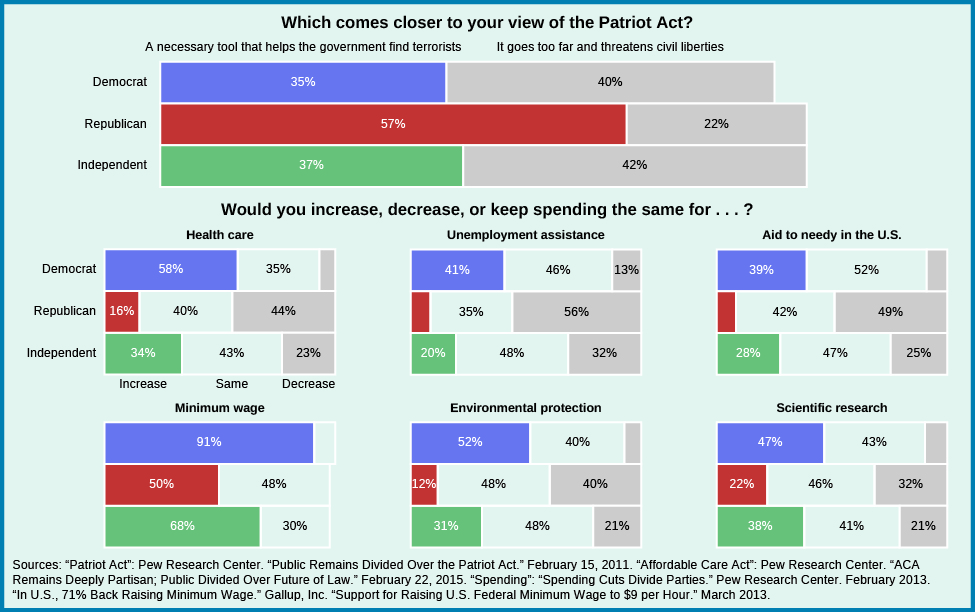| << Chapter < Page | Chapter >> Page > |
In theory,
communism promotes common ownership of all property, means of production, and materials. This means that the government, or states, should own the property, farms, manufacturing, and businesses. By controlling these aspects of the economy, Communist governments can prevent the exploitation of workers while creating an equal society. Extreme inequality of income, in which some citizens earn millions of dollars a year and other citizens merely hundreds, is prevented by instituting wage controls or by abandoning currency altogether. Communism presents a problem, however, because the practice differs from the theory. The theory assumes the move to communism is supported and led by the proletariat, or the workers and citizens of a country.
We can characterize economic variations on these ideologies by adding another dimension to the ideological spectrum above—whether we prefer that government control the state economy or stay out of it. The extremes are a command economy, such as existed in the former Soviet Russia, and a laissez-faire (“leave it alone”) economy, such as in the United States prior to the 1929 market crash, when banks and corporations were largely unregulated. Communism prioritizes control of both politics and economy, while libertarianism is its near-opposite.
Libertarians believe in individual rights and limited government intervention in private life and personal economic decisions. Government exists to maintain freedom and life, so its main function is to ensure domestic peace and national defense. Libertarians also believe the national government should maintain a military in case of international threats, but that it should not engage in setting minimum wages or ruling in private matters, like same-sex marriage or the right to abortion.
The point where a person’s ideology falls on the spectrum gives us some insight to his or her opinions. Though people can sometimes be liberal on one issue and conservative on another, a citizen to the left of liberalism, near socialism, would likely be happy with the passage of the Raise the Wage Act of 2015, which would eventually increase the minimum wage from $7.25 to $12 an hour. A citizen falling near conservatism would believe the Patriot Act is reasonable, because it allows the FBI and other government agencies to collect data on citizens’ phone calls and social media communications to monitor potential terrorism ( [link] ). A citizen to the right of the spectrum is more likely to favor cutting social services like unemployment and Medicaid.

Where do your beliefs come from? The Pew Research Center offers a typology quiz to help you find out. Ask a friend or family member to answer a few questions with you and compare results. What do you think about government regulation? The military? The economy? Now compare your results. Are you both liberal? Conservative? Moderate?
Public opinion is more than a collection of answers to a question on a poll; it represents a snapshot of how people’s experiences and beliefs have led them to feel about a candidate, a law, or a social issue. Our attitudes are formed in childhood as part of our upbringing. They blend with our closely held beliefs about life and politics to form the basis for our opinions. Beginning early in life, we learn about politics from agents of socialization, which include family, schools, friends, religious organizations, and the media. Socialization gives us the information necessary to understand our political system and make decisions. We use this information to choose our ideology and decide what the proper role of government should be in our society.

Notification Switch
Would you like to follow the 'American government' conversation and receive update notifications?